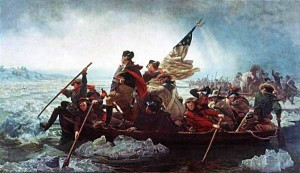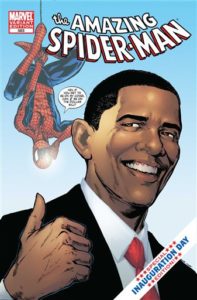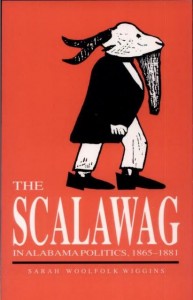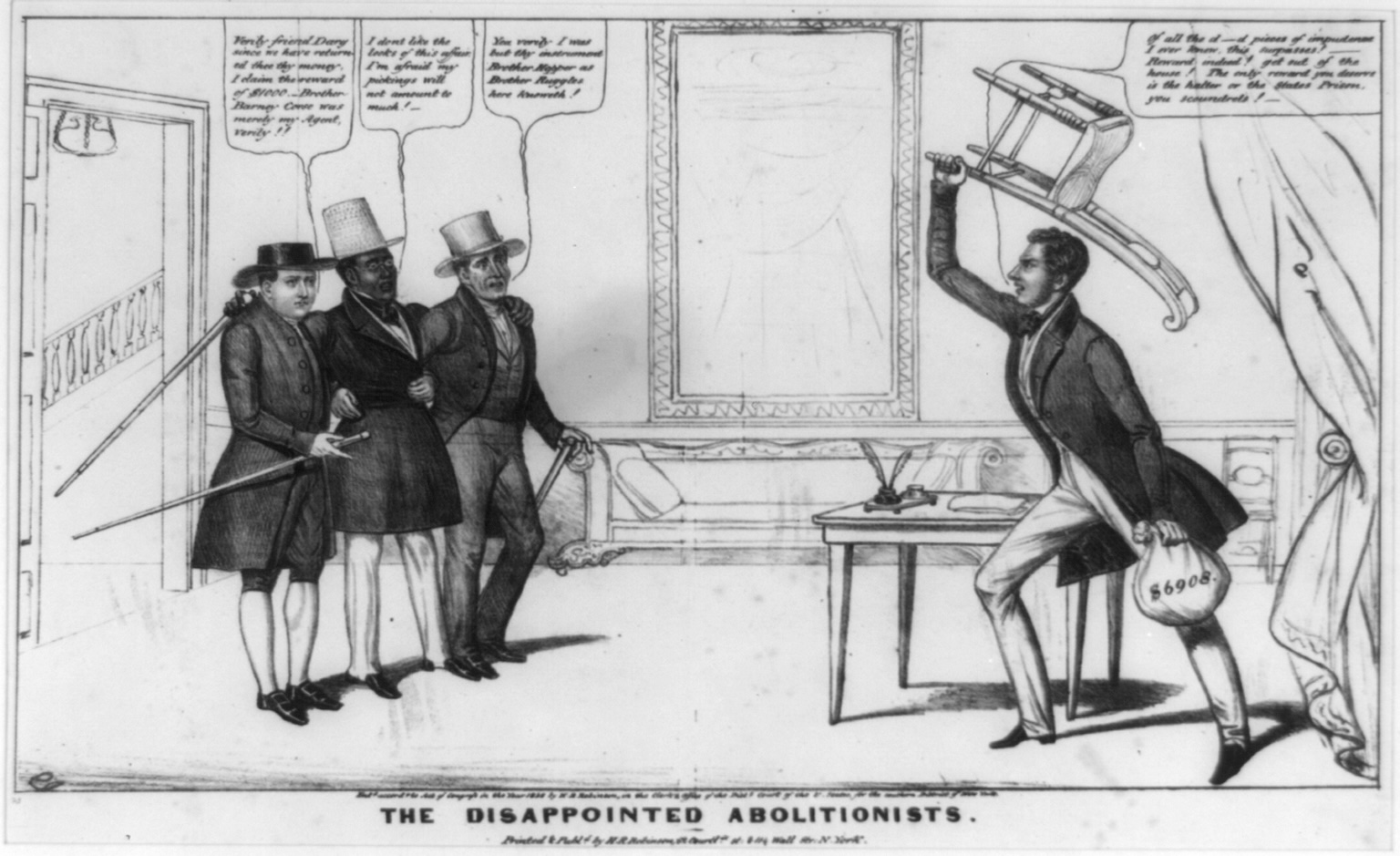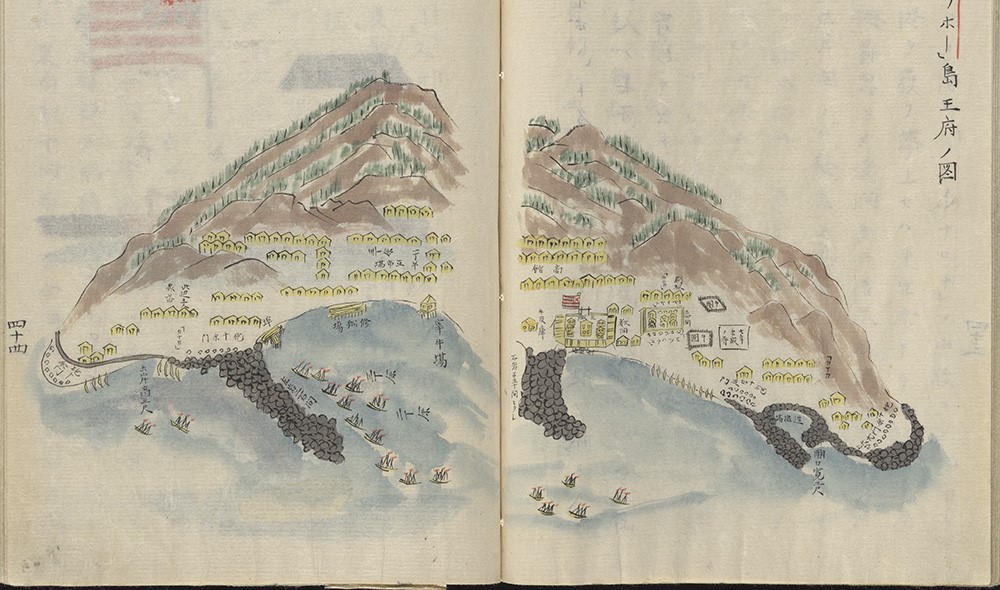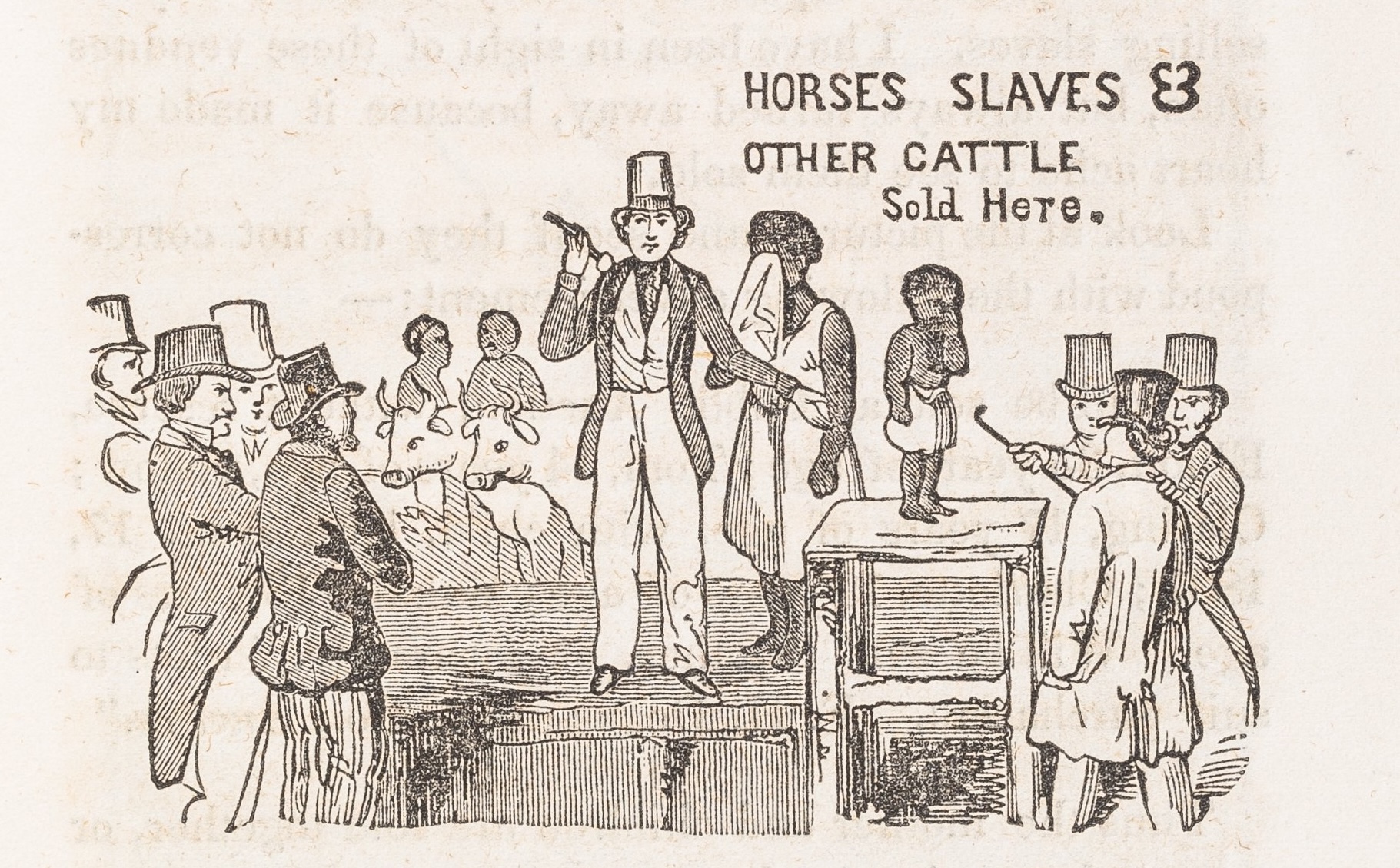Modern Franklin Gets the Boot [UPDATED]
One of the most famous populist crusades against the modern medicine of its time was in 1721 when young Ben Franklin and his older brother James went after the smallpox inoculation policy favored by colonial Boston’s ministerial elite. The Massachusetts Historical Society has an excellent online presentation about the controversy, including images of Ben’s pseudonymous essays from the New England Courant. (Historians help me with some less well-known examples).
But historical context only goes so far, and just because some Founder did it, does not necessarily make it right in every case. So quite likely Dr. Andrew Wakefield really did need to be drummed out of the medical profession [original link to AP story no longer works]:
LONDON — The doctor whose research linking autism and the vaccine for measles, mumps and rubella influenced millions of parents to refuse the shot for their children was banned Monday from practicing medicine in his native Britain.
Dr. Andrew Wakefield’s 1998 study was discredited — but vaccination rates have never fully recovered and he continues to enjoy a vocal following, helped in the U.S. by endorsements from celebrities like Jim Carrey and Jenny McCarthy
Wakefield was the first researcher to publish a peer-reviewed study suggesting a connection between autism and the vaccine for measles, mumps and rubella. Legions of parents abandoned the vaccine, leading to a resurgence of measles in Western countries where it had been mostly stamped out. There are outbreaks across Europe every year and sporadic outbreaks in the U.S.
“That is Andrew Wakefield’s legacy,” said Paul Offit, chief of infectious diseases at the Children’s Hospital of Philadelphia. “The hospitalizations and deaths of children from measles who could have easily avoided the disease.”
Wakefield’s discredited theories had a tremendous impact in the U.S., Offit said, adding: “He gave heft to the notion that vaccines in general cause autism.”
In Britain, Wakefield’s research led to a huge decline in the number of children receiving the MMR vaccine: from 95 percent in 1995 — enough to prevent measles outbreaks — to 50 percent in parts of London in the early 2000s. Rates have begun to recover, though not enough to prevent outbreaks. In 2006, a 13-year-old boy became the first person to die from measles in Britain in 14 years.
“The false suggestion of a link between autism and the MMR vaccine has done untold damage to the UK vaccination program,” said Terence Stephenson, president of the Royal College of Paediatrics and Child Health. “Overwhelming scientific evidence shows that it is safe.”
Unfortunately, even when the British totally discredit you, there is always Texas, as Brian Deer of the London Times explains.
March 19, 2009
Public-Private Partisanship: The Sources of Media Outrage over the AIG Bonuses
I find it extremely interesting to note what it took, after all of these years of corporate malfeasance and incompetence going back the 90s dot-com bubble, to get the mainstream media into full 24/7 scandal mode on a business story. To get the media spouting “populist” outrage against a corporation, what was needed was for the corporation to become more than 80% publicly-owned. Even now there seems to be a tendency for the media to defer to the pretend private business executives running AIG, and save the journalistic shouting for the president and his underlings. Is bowing to private wealth and autocratic power so ingrained that only the public takeover gave the media “permission” to go after a company? Are the media just capitalist stooges ideologically trying to slough off the private sector’s depredations on to the public servants charged with the impossible task of rectifying them? Or was the mainstream political media (especially the TV and the local press/AP) just too idiotic to do anything with a complex business story until it could be reduced to the rote terms of the post- (and sub-Watergate) D.C. political scandal: what-did-the-president-know-and-when-did-he-know-it? Or there is something deeper at work here, having to do with the demonization of governmental authority that the American Revolution (as read by some guy called Bailyn) built into our republic’s DNA?
Possibly the answer is some of all of the above. It is not an original thought with me to note that the final separation of American Christianity from government around 1820 (except for certain missionary groups) seemed to do wonders for Christianity’s popular appeal and cultural power. As Lyman Beecher finally realized, New England Congregationalism’s overt association with the region’s governing elite, and its tax structure, had only weighed it down. Their churches no longer supported by government revenues, Yankee Protestants created a “Benevolent Empire” of eleemosynary institutions and voluntary societies, like the newly private colleges and many social reform associations that popped up in the 19th century, that gained various special protections from government even as they became tremendous forces for shaping public policy.
It’s almost as if the more privatized and immune to public oversight an institution becomes in American culture the more sacrosanct it is, and, as in the AIG case, vice versa. It’s almost as if no one actually believes we have a system of self-government.
At Least You’re Not Travelling by Steamboat
For instance, I have been reminded that steamboats were possibly the most dangerous form of powered travel ever invented. Floating palaces of occasional scalding death, those things were, when they didn’t sink, run aground, or out of fuel. At any rate, I thought this page from University of Northern Iowa, “Helpful Hints For Steamboat Passengers” was fairly informative and clever. It admits to being made-up in the first few sentences but when I first found the page I missed that and thought for a while that someone had posted an unusually honest piece of 19th-century travel advice literature.
I also had to remind myself about earthquakes. I was looking up the New Madrid Earthquake 1811-1812 specifically, when “the Mississippi River ran backward.” More generally I re-ingested the fact we here in the Nation’s Doughy Midsection live in a California-esque environment, seismically speaking, only without the beaches, the Hollywood glitz, or buildings designed to withstand earthquakes. Here is a somewhat dated but informative video I found (possibly from the U.S. Geological Survey) that lays out the information without the History Channel hype. Check out the discussion of “liquefaction.” A good time will be had by all: Missouri highways already drive like they are paved over liquid.
If that is not worrisome enough, I also found a far too informative site includes a feature where you can see all the Central U.S. earthquakes detected in the last six months, week, or two hours.
January 25, 2009
They had me going there
“Algonkian Indian Influences on Yankee Foodways“:

I saw this public lecture announcement come over one of the early American history email lists and assumed the worst, that someone was blaming New England’s indigenous peoples for Moxie and canned bread, possibly by way of crediting them. But I guess not. Phew! That would be adding insult to injury if I ever saw it.
Actually that lecture sounds quite interesting, and if I lived in Connecticut, I would go to it. The phrase “Yankee foodways” just gave me flashbacks to some of our early experiments with the local, um, cuisine when we first moved out there.
January 23, 2009
A Commodious Space for Commodities
Common-place publishes the occasional “Object Lessons” column with good reason: knowing your material culture is important. For instance, when cataloging the office furniture purchases of ex-Merrill-Lynch CEO John Thain, The Consumerist’s Ben Popken makes a horrible mistake, and then corrects himself with the help of a little eighteenth-century know-how.
(hat tip, BPM)
January 21, 2009
Other Voices
A couple of civilian (non-historian) friends also chimed in with their thoughts on Obama’s speech, through the magic of Facebook. My more positive friend C says:
One of the lines that struck me was “The question we ask today is not whether our government is too big or too small, but whether it works.” I thought that was a great way to say that he’s going to approach problems from a very different perspective than we’ve seen recently. I feel like we’ve been dealing with Reagan’s world view for 20+ years, and we finally have someone that can move us past that.
My snarkier friend B emphasizes a line I should have:
Hey Jeff – you know, I look forward to 8 years of being disappointed in a president I thought could be better versus 8 years of being outraged at a president I didn’t think could be any worse. Obama as the great orator is almost as much a myth manufactured by his political adversaries as the notion that he is a radical liberal or socialist – he’ll never live up to the McCain hype. Yet I shed more than one or two tears when Aretha was singing – something real was going on today. You know, with Bush and the president (Cheney) sitting there on the same stage, I was reminded of Colbert’s roast from a few years ago more than once today as Obama spoke. One of those moments for me was the section that started:
“As for our common defense, we reject as false the choice between our safety and our ideals.”
Hey Hey Goodbye
January 20, 2009
Grow Up, America: Choose Our Better History
I have long thought that now-President Obama’s reputation as an orator was little inflated, more by a media and public starved for a leader who could speak in complete sentences and cogent thoughts than by the man himself. That is an observation, not a criticism. My short speech-writing period left me with a very lively sense of how hard and ill-advised it is for a real modern human being to write or speak like a JFK film clip. Lots of Democratic politicians have hurt themselves rhetorically by trying to channel JFK. When they try MLK, it is generally even worse.
Today’s inaugural address was much like Obama’s convention acceptance speech in wisely avoiding Sorensenian flights of inspirational rhetoric and preacherly flourishes, but instead presenting liberal values and a post-imperial world view in forms that Americans raised on decades of Reaganism might be able to accept. Here is a passage that struck me:
We remain a young nation, but in the words of Scripture, the time has come to set aside childish things. The time has come to reaffirm our enduring spirit; to choose our better history; to carry forward that precious gift, that noble idea, passed on from generation to generation: the God-given promise that all are equal, all are free, and all deserve a chance to pursue their full measure of happiness.
In reaffirming the greatness of our nation, we understand that greatness is never a given. It must be earned. Our journey has never been one of short-cuts or settling for less. It has not been the path for the faint-hearted – for those who prefer leisure over work, or seek only the pleasures of riches and fame. Rather, it has been the risk-takers, the doers, the makers of things – some celebrated but more often men and women obscure in their labor, who have carried us up the long, rugged path towards prosperity and freedom.
Nothing special there rhetorically — even the nice “better history” line turns out to be recycled from Obama’s late campaign stump speech. Yet what he was saying what rather noteworthy, coming from a U.S. president. Here and in other parts of the speech, the infantile exceptionalism that has become nearly our national creed was quietly but firmly rejected. Our freedom, wealth, and power relative to other nations do not exempt us from the exigencies of history or the rules of morality, Obama declared. Quite the contrary. We are not authorized to “do as we please” just because we are America; our activities have an impact on other peoples that must be taken into account, and that accounting must modify our behavior. Poverty, injustice, fear, evil, and incompetence all exist in modern America and as part of our tradition. We can and must choose our “better history,” and also choose not to dwell on the worst, but the worst is still there, some it of sitting on the inaugural dais, in a wheelchair.
As in the convention speech, there was also a distinctly liberal economic message in Obama’s inaugural address, but delivered in so mild and sensible a fashion as to be almost impossible for all but the most hardened ideologues to disagree with. The free market is a powerful tool for generating wealth, but it cannot work properly without the “watchful eye” of government. Otherwise the market will “spin out of control.” The last line quoted above, about “the risk-takers, the doers, the makers of things” was one that many listeners (including Fox’s Brit Hume) probably heard as a shout-out to capitalist entrepreneurs. What it really was, or perhaps simultaneously acted as, was a little restatement of the labor theory of value that can be linked back to the producerism that has been the heart of so many past radical movements in American history. True wealth was not created by amassing “riches,” Obama argued, but instead by making things through our labors.
I make no claim that there is anything radical about Obama, or even Populist, and I worry about the Wall Street/Ivy League establishmentarians he has guiding his economic policy here at the outset. Yet he does represent and express the better part of our historical political tradition. I am happy that we chose it and look forward to the day when it does not take a national crisis to bring some of those better angels out.
The Times that Try Men’s Souls
President Obama (wow.) just gave his inaugural address, with an unattributed quote:
So let us mark this day with remembrance, of who we are and how far we have traveled. In the year of America’s birth, in the coldest of months, a small band of patriots huddled by dying campfires on the shores of an icy river. The capital was abandoned. The enemy was advancing. The snow was stained with blood. At a moment when the outcome of our revolution was most in doubt, the father of our nation ordered these words be read to the people:
“Let it be told to the future world…that in the depth of winter, when nothing but hope and virtue could survive…that the city and the country, alarmed at one common danger, came forth to meet [it].”
Obama seemed (at least to the tv talking heads) to imply that these were George Washington’s words, but the quote is from the first of Thomas Paine’s papers entitled The American Crisis. I also think some people may have jumped to the conclusion that this was the Valley Forge winter, but Obama is referring to December 1776, when Washington was about to lose much of his army to expiring enlistments, and the Battles of Trenton and Princeton had not yet taken place. The particular paragraph from which this quote is drawn is actually quite a belligerent passage.
Well, it’s a new administration, and an exciting day. I’m looking forward to tomorrow, when the pomp will be over and the country can get to work.
January 18, 2009
Power and Responsibility: What Barack Obama Learned from Peter Parker
We’re all aware that this is a huge moment in the social history of the presidency — first African-American president, first president born after 1960, etc. — but it’s also an interesting moment in the cultural history of the presidency. Doubtless most readers have seen the publicity about Barack Obama’s appearance in the current issue of Amazing Spider-Man, which Marvel Comics editor-in-chief Joe Quesada described as a “shout-out back” to a president-elect who was outed as a former comic collector some time ago. [Read some of the key panels here.] What we didn’t know was that the idiom of the comics our generation (”X ” or Jones or whatever) grew up with had become part of his political language. Actually, I suspected as much, but today we have proof.
My wife noticed the following in what was billed as Obama’s inauguration letter to his daughters, published in this morning’s Sunday newspaper supplement, Parade Magazine.
“I want every child to understand that the blessings these brave Americans fight for are not free-that with the great privilege of being a citizen of this nation comes great responsibility.”
This is a paraphrase of Spider-Man’s motto — “With great power comes great responsbility” first presented in Spidey’s origin story from Amazing Fantasy #15 [see below] and repeated frequently thereafter. It was the guiding philosophy not only for Peter, who gave up his career to stay home and help, er, organize his community, but for the whole Marvel superhero line. Spider-Man, the Fantastic Four, Captain America, the X-Men and the rest regularly fought right-wing demagogues, racists, neo-Nazis, war profiteers, and colonialists along with the Green Goblin and Doctor Doom, who come to think of it were good enemies for a liberal hero, too, an irresponsible businessman and an unreconstructed monarchist, respectively.
Sure that “responsibility” line was in the movie, too, but I feel quite certain that Obama first read it in the original. And he also may not be the only member of his generation to pick up some of his liberal ideas from the House of Ideas [one of Stan Lee’s many nick-names for his company]. One idea in particular was that a decent person or nation had a duty to do something with whatever gifts it had been given — freedom, a sharp mind, spider-powers, a nuclear arsenal, or whatever — besides showing off. I do believe today was the first time Parade Magazine ever choked me up.
Common-Place Politics Issue Heads to the Archives
This is also a good moment to express our gratitude to outgoing Common-Place editor Ed Gray, whose efficiency, editorial skill and astounding patience and diplomacy in dealing with troublesome authors and guest editors has really kept this unique enterprise going the last 5 years. I am sure he is already enjoying his greatly-reduced email load.
Common-Place editor and blogger in Milan, celebrating completion of Common-Place Politics Issue conferring on Thomas Paine.
January 17, 2009
So that’s why they call it agribusiness!
“USDA employee accused of running prostitution ring” — a statistician no less. As Jefferson said, “Corruption of morals in the mass counters of cultivators is a phenomenon of which no our age nor and nation has furnished an example.”
January 16, 2009
Early Republic Rockers on Tour
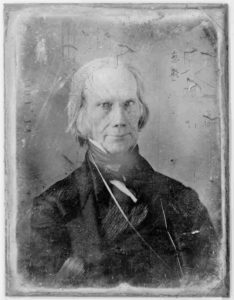 One of the Early Republic-themed (or -named) bands mentioned in an earlier post are on tour. That’s right, The Henry Clay People are coming to a city near you. (They seem to have chosen the Des Moines rather than Columbia/St. Louis route across, often an either/or matter, so I may have to give them a miss.) I am not entirely sold on these guys musically, but maybe someone’s Dad is a historian, so we should support them. Listen here, and below. The album the HCP is touring behind is here. Unfortunately they are not touring with the not previously-mentioned The Whigs, who are also on the road. (Listen to the Whiggery here.) This band does have amusing link that allows you to “Join the Whig Party,” which seems to involve period-inaccurate costumes. Both these band seem to espouse fairly traditional rock values, which is somewhat Whig-like.
One of the Early Republic-themed (or -named) bands mentioned in an earlier post are on tour. That’s right, The Henry Clay People are coming to a city near you. (They seem to have chosen the Des Moines rather than Columbia/St. Louis route across, often an either/or matter, so I may have to give them a miss.) I am not entirely sold on these guys musically, but maybe someone’s Dad is a historian, so we should support them. Listen here, and below. The album the HCP is touring behind is here. Unfortunately they are not touring with the not previously-mentioned The Whigs, who are also on the road. (Listen to the Whiggery here.) This band does have amusing link that allows you to “Join the Whig Party,” which seems to involve period-inaccurate costumes. Both these band seem to espouse fairly traditional rock values, which is somewhat Whig-like.
January 15, 2009
The friend of my enemy is not someone I want anything to do with
This not a real proverb, but a political principle that it does not take much of an historian to see applies to the attitudes of pretty much every colonial people or small nation whose territory has been invaded since the dawn of modern nationalism, at least. Nobody likes getting their homes bombed, their cities overrun by foreign troops, their friends, neighbors, and relatives traumatized, maimed, or killed. People remember that stuff, and they tend not to look kindly on the politicians and officials who get installed or helped into power by the invaders, perhaps especially if the officials of the new regime are natives of the invaded territory.
Shall we recall a U.S. example? Let’s. In American schools, we used to learn a name for what the defeated Confederates called those who staffed the Reconstruction regimes: “scalawags,” “carpetbaggers,” and lots of worse things. We were not taught to admire those fellows. As we know from Eric Foner and other post-”revisionist” historians of Reconstruction, many of these officials were not grafters and traitors, but honest reformers trying to help the people of the South and improve their society and economy. Nevertheless, despite these noble intentions, the new regimes required the federal government’s protection to be stable and inspired a rather famous terrorist insurgency called the Ku Klux Klan. Once outside support was withdrawn, the South was immediately “redeemed” by the same people who started the CIvil War in the first place.
Of course, the more relevant example for the present-day issues of this type would be the politics of every post-colonial nation one can think of except Canada, Australia, and New Zealand: the sure path to political popularity and power in such countries was virulent opposition to the continuing influence of the old colonial power, even if such opposition was likely to be counter-productive. There was this early American politician called Jefferson who ended up president in no small degreee because he was the leading opponent of a non-anti-British foreign policy.
So, given this sort of historical experience, why would any policy-maker expect massively destructive invasions by overwhelmingly superior forces in isolated, beaten-down places like Gaza and Iraq to result in the people of those places warmly accepting regimes that the invaders helped to install? Yet the failure of the Iraqi people to do just this is Dick Cheney’s only regret about the Iraq War — and not because he was wrong to expect it, but because of their supposedly damaged psyches.
Even more incredibly, the Israelis apparently thought that crushing Gaza was going to give their favored party, the secular Palestinian Authority, the chance to win power back from Hamas. From the New York Times:
This not a real proverb, but a political principle that it does not take much of an historian to see applies to the attitudes of pretty much every colonial people or small nation whose territory has been invaded since the dawn of modern nationalism, at least. Nobody likes getting their homes bombed, their cities overrun by foreign troops, their friends, neighbors, and relatives traumatized, maimed, or killed. People remember that stuff, and they tend not to look kindly on the politicians and officials who get installed or helped into power by the invaders, perhaps especially if the officials of the new regime are natives of the invaded territory.
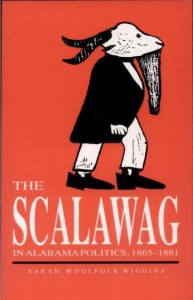
Shall we recall a U.S. example? Let’s. In American schools, we used to learn a name for what the defeated Confederates called those who staffed the Reconstruction regimes: “scalawags,” “carpetbaggers,” and lots of worse things. We were not taught to admire those fellows. As we know from Eric Foner and other post-”revisionist” historians of Reconstruction, many of these officials were not grafters and traitors, but honest reformers trying to help the people of the South and improve their society and economy. Nevertheless, despite these noble intentions, the new regimes required the federal government’s protection to be stable and inspired a rather famous terrorist insurgency called the Ku Klux Klan. Once outside support was withdrawn, the South was immediately “redeemed” by the same people who started the CIvil War in the first place.
Of course, the more relevant example for the present-day issues of this type would be the politics of every post-colonial nation one can think of except Canada, Australia, and New Zealand: the sure path to political popularity and power in such countries was virulent opposition to the continuing influence of the old colonial power, even if such opposition was likely to be counter-productive. There was this early American politician called Jefferson who ended up president in no small degreee because he was the leading opponent of a non-anti-British foreign policy.
So, given this sort of historical experience, why would any policy-maker expect massively destructive invasions by overwhelmingly superior forces in isolated, beaten-down places like Gaza and Iraq to result in the people of those places warmly accepting regimes that the invaders helped to install? Yet the failure of the Iraqi people to do just this is Dick Cheney’s only regret about the Iraq War — and not because he was wrong to expect it, but because of their supposedly damaged psyches.
Even more incredibly, the Israelis apparently thought that crushing Gaza was going to give their favored party, the secular Palestinian Authority, the chance to win power back from Hamas. From the New York Times:
JERUSALEM — Israel hoped that the war in Gaza would not only cripple Hamas, but eventually strengthen its secular rival, the Palestinian Authority, and even allow it to claw its way back into Gaza.
But with each day, the authority, its leader, Mahmoud Abbas, and its leading party, Fatah, seem increasingly beleaguered and marginalized, even in the Palestinian cities of the West Bank, which they control. Protesters accuse Mr. Abbas of not doing enough to stop the carnage in Gaza — indeed, his own police officers have used clubs and tear gas against those same protesters.
The more bombs in Gaza, the more Hamas’s support seems to be growing at the expense of the Palestinian Authority, already considered corrupt and distant from average Palestinians.
“The Palestinian Authority is one of the main losers in this war,” said Ghassan Khatib, an independent Palestinian analyst in the West Bank city of Ramallah. “How can it make gains in a war in which it is one of the casualties?”
Israel is proposing, with the tacit agreement of Egypt and the United States, to place the Palestinian Authority at the heart of an ambitious program to rebuild Gaza, administering reconstruction aid and securing Gaza’s borders. But that plan is already drawing skepticism. Mr. Khatib, for example, called the idea of any Palestinian Authority role in postwar Gaza “silly” and “naïve.”
Perhaps more dispiriting to the ever fewer who believe that any overall settlement is possible now — with peace negotiations suspended and Palestinians divided between Hamas in Gaza and the Palestinian Authority in the West Bank — is that Israel itself does not really hold out high hopes for a larger postwar role for Fatah. Israel’s proposals seem dutiful, an acknowledgment of a stalemate that not even so ferocious an assault on Hamas can undo.
“There are not too many realistic ideas around,” conceded Yigal Palmor, a spokesman for the Israeli Foreign Ministry. The reason: Most ideas, he said, largely rely “on the good will of Hamas.” That may be in short supply, because Hamas, deeply embedded in Gazan society both as a fighting force and a provider of social services, seems highly likely to survive in some form after this war.
Ever since Hamas began its one-party rule of Gaza, in the summer of 2007, Israel and the West have tried to turn Gazans against Hamas through an economic embargo and diplomatic isolation. While there is certainly anger at Hamas among Gazans, it pales beside the anger at Israel, the West and what some see as Fatah’s collusion with those enemies.
Mr. Abbas and his loyalists have not entered Gaza since 2007, when they were ousted by Hamas, which took over the area after a brief but ruthless factional war. They are now hoping that the Egyptian cease-fire initiative will serve as a vehicle to regain a foothold there.
Of course, not only has the Israeli attack on Gaza not destroyed Hamas or reinstalled Fatah, it has not even stopped the rocket fire into Israel that was the main justification for the invasion. And, really, what should we expect? What if it were U.S. southern or rural white men involved in a similar situation; what would we expect? I know there is some quotation I should be using here, but I imagine if their country had been invaded, we would expect that southern white men would consider it their duty to keep firing rockets as long as they still had the gasoline and fingers to do it with. Fight to the end, and beyond: it’s one of the master narratives of American male culture, embodied in Birth of a Nation,The Patriot, Red Dawn, most of the early World War II films, and thousands of other popular American stories.
There’s a word for the assumption that another people will react differently (more submissively) than your own to violent coercion: racist. I am not in the habit of pointing that particular finger, but it really seems to fit in the case of the thinking that underlies U.S. and Israeli policy toward the Palestinians and the rest of the Muslim world.
These blog posts originally appeared in issues 9.2-9.3 (January, 2009-April, 2009).
Jeffrey L. Pasley is associate professor of history at the University of Missouri and the author of “The Tyranny of Printers”: Newspaper Politics in the Early American Republic (2001), along with numerous articles and book chapters, most recently the entry on Philip Freneau in Greil Marcus’s forthcoming New Literary History of America. He is currently completing a book on the presidential election of 1796 for the University Press of Kansas and also writes the blog Publick Occurrences 2.0 for some Website called Common-place.





